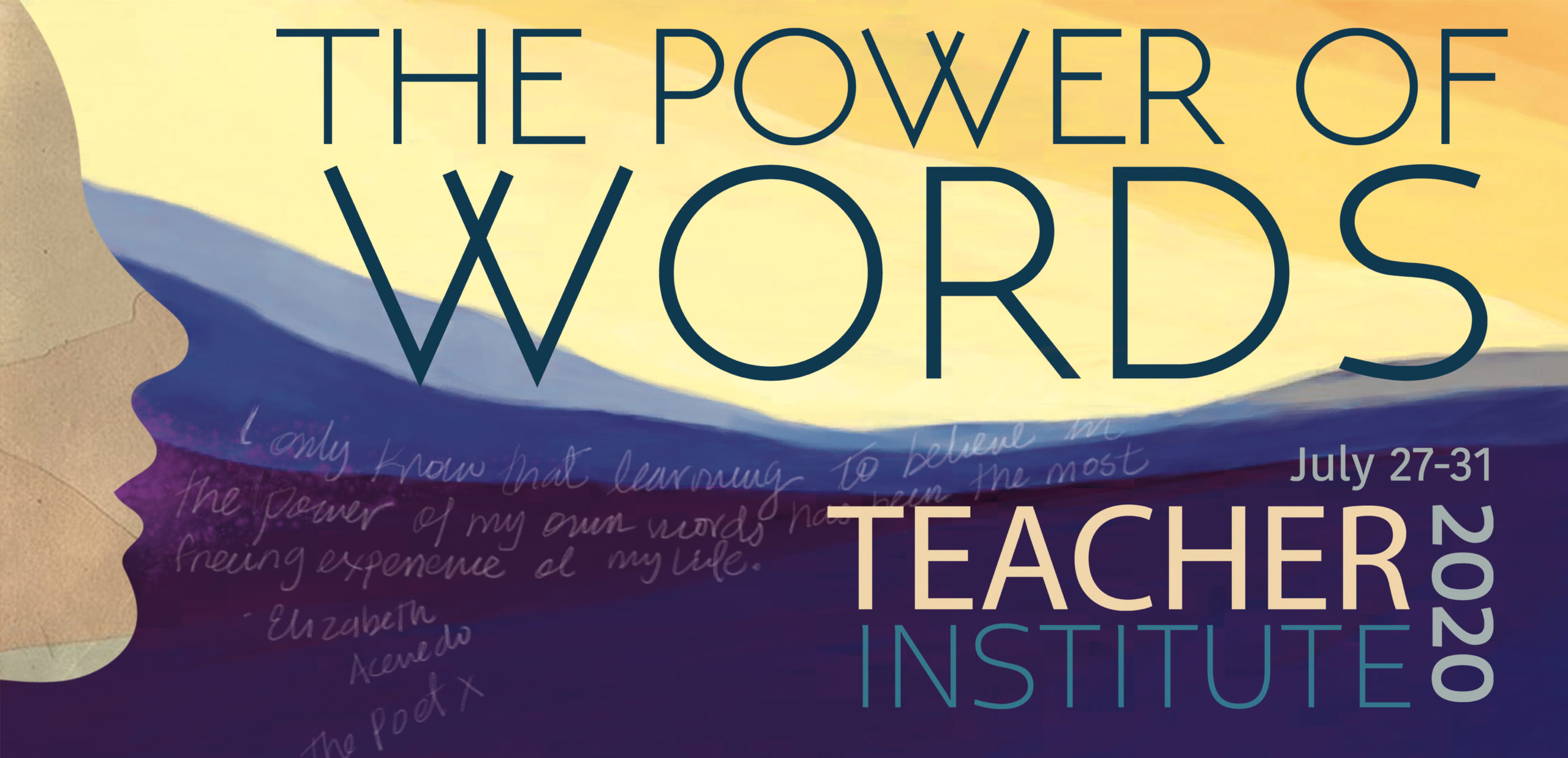
The Power of Words: 12th Annual Habla Virtual Teacher Institute
July 27th through 31st
The12th Annual Teacher Institute was conducted virtually, bringing together educators from around the world. Habla Teacher Institutes have always engaged with the power of words in building an on-going lively international community dedicated to an ever-evolving exploration of meaningful teaching and learning in and through the arts. But this commitment has become even more essential in the face of a worldwide “new normal” that requires us to more urgently confront long standing issues of global health, educational opportunity, and social justice. We must become, like our students, explorers of unfamiliar landscapes - as we experiment together with new technologies, new community building strategies, and new approaches to documenting and reflecting upon our work even while separated in space and time in unfamiliar ways. This requires us to draw upon deepened reserves of patience, self-forgiveness, and persistence as we enter into new adventures in fulfilling our lifelong missions, and to remaining open to the exciting new opportunities that our current missteps and discoveries open up for ourselves, our students, our communities, and each other.I only know that learning to believe in the power of my own words has been the most freeing experience of my life. It has brought me the most light. And isn't that what a poem is? A lantern glowing in the dark.
Elizabeth Acevedo, The Poet X
In the National Book Award winning novel The Poet X, Elizabeth Acevedo explored how words can bring people and communities together. This summer’s Habla Teacher Institute focused on the various ways we can bring the power of words into our classroom. Often in schools we take the power out of words by relegating them to spelling bees, vocabulary lists, and standardized tests. This institute worked to bring the power back into words in in -person and online educational settings by exploring how we can generate renewed energy in the way we teach writing, reading, literature, language, and the arts. A constellation of additional poems and children’s books supplemented our core text The Poet X.
This Habla online institute was designed to be highly interactive and participatory, including hands-on workshops utilizing a variety of digital tools and home art supplies, peer-to-peer sharing of participants’ practices in their own classrooms, and a “digital performance” on the final day. Throughout the institute we worked to model new, manageable ways for bringing performance and visual art-making into our online education communities and classrooms.
The institute was for teachers of every level - from college to pre-school. In recognition of the fact that various educators have a range of comfort with new technology applications, the workshops were designed so that no previous experience with any of the digital platforms we used was necessary. One-on-one coaches were available for any participant who had technical issues during the institute.
The institute served as a creative context for reflecting upon and revitalizing our own teaching and learning. This was accomplished through engaging literature, art, music, and movement in new and invigorating ways. All teaching and learning at Habla is organized around the following elements:
- Essential Questions/Concepts
- Meaningful Texts
- The Production of Original Artistic and Written Products
- Performances of Understanding
- Meaningful Texts
- The Production of Original Artistic and Written Products
- Performances of Understanding
Grounded in these core principles:
- Building community
- Honoring bilingualism
- Supporting peer to peer teaching and learning
- Creating beautiful work
- Connecting the world of the text to the lived world of its readers
- Peer to peer co-construction of artworks and knowledge
- Documenting our processes and products
- Reflecting on our work
- Honoring bilingualism
- Supporting peer to peer teaching and learning
- Creating beautiful work
- Connecting the world of the text to the lived world of its readers
- Peer to peer co-construction of artworks and knowledge
- Documenting our processes and products
- Reflecting on our work
The institute was intentionally designed to be multi-modal – moving from the investigation of literature, to the creation of new artworks, to reflection on our varied experiences and responses. Challenging texts were demystified by paying close attention to the actual language (its sounds and silences when read aloud, its resonances, its images, its textures); by sharing multiple interpretations of and associations with particular pieces of text; by transmediation (re-representing the work in different media); and by embodying our inquiry through performances of understanding to be seen and heard by others.
Featured Texts

2020 Habla Virtual Teacher Institute Presenters and Organizers
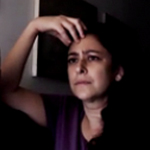
Maria del Mar Patron
Habla Co-Founder

Kurt Wootton
Habla Co-Founder

Cynthia Weiss
Visual Artist
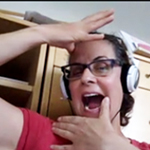
Patricia Sobral
Professor
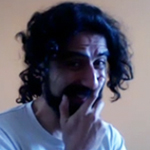
Dario Bernal
Percussionist

Donald King
Professor

Arnold Aprill
Documentarian

Nick Rabkin
Research Scientist

Tommaso Iskra De Silvestri
Teaching Artist
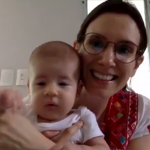
Madeline Beath
Institute Coordinator

Lee Ceh
Tech Support
